The Importance of Setting Financial Goals and How to Get Started
Why Setting Financial Goals Can Transform Your Future
When it comes to financial planning, everyone’s journey looks different. Some people are just getting started, trying to save while raising kids, while others may be nearing retirement and feeling behind. Whether you’re juggling bills or planning for the next chapter of your life, one thing remains constant—setting clear financial goals is essential.
Without goals, it’s easy to drift from one paycheck to the next. But with goals, even small ones, you create momentum, direction, and purpose for your money.
Why Listen to Me?
I’m Ben Loughery, CFP®, and as the founder of Lock Wealth Management, I’ve helped hundreds of clients at all stages of life—young professionals, families, and retirees. In my experience, those who take the time to define their goals experience greater confidence and peace of mind.
I’ve worked with clients who felt financially stuck or overwhelmed, and I’ve seen how simple goal-setting transformed their financial future. This article will guide you through:
• How to set goals based on your stage in life
• Ways to break large goals into manageable steps
• Tools to help automate and track your progress
👉 Want to learn how to retire without the worry of running out of money in retirement? Click here to watch this video
Why Financial Goals Matter at Every Life Stage
Key Takeaways:
• Goals provide clarity and direction.
• They transform vague intentions into actionable steps.
• Financial goals help measure progress and celebrate wins.
• They protect against emotional, reactive decisions during market fluctuations.
According to a study by Northwestern Mutual, 60% of Americans with financial plans say they feel financially secure, compared to just 18% of those without a plan.
Different Financial Goals for Different Life Stages
1. Starting Out: Building a Foundation (20s to Early 30s)
When you’re just beginning your career, financial planning can feel like something you’ll do “later.” But this is the best time to start—even small actions compound over time.

In my experience, young professionals benefit most from focusing on:
• Creating an emergency fund (3-6 months of expenses).
• Paying down high-interest debt (credit cards, personal loans).
• Starting retirement savings (even $50/month makes a difference).
Real-World Example: A recent client in his late 20s had student loans and wasn’t sure how to start saving. We set a goal to pay off $10,000 in debt over 2 years by reallocating part of his budget. We also started small 401(k) contributions, which grew faster than he expected.
2. Growing with Family and Responsibilities (30s to 50s)
This is often the busiest and most expensive time of life—raising kids, paying mortgages, and building careers. Financial goals need to balance current needs with future planning.
- I recommend focusing on:
- Saving for kids’ education (529 plans). (Source: Saving for College).
- Increasing retirement contributions as income grows.
- Protecting your family through insurance and estate planning.
In my experience, families who prioritize budgeting tools, like Monarch Money (Source: Monarch Money), are better able to balance short- and long-term goals.
Real-Life Scenario:A couple in their 40s came to me feeling overwhelmed by monthly expenses and lack of retirement savings. We set a target to reduce discretionary spending by 15% and redirect that money into their retirement account. Over the next three years, they increased their savings by $30,000.
3. Catching Up Later in Life (50s to 60s)
Sometimes life doesn’t go as planned. Divorce, job loss, or the death of a spouse can derail financial plans. In my experience, clients at this stage feel the most pressure to “catch up.”
- If you’re behind, focus on:
- Maxing out retirement contributions (401(k), IRAs). (Source: IRS Contribution Limits).
- Eliminating unnecessary expenses to free up cash flow.
- Exploring part-time work or passive income streams.
Real-Life Example: A widow in her late 50s had never managed her family’s finances. After her husband passed, we created a goal to consolidate assets, adjust spending, and create a reliable income stream from investments. Within five years, she felt more confident and secure.
4. Retirees: Protecting and Enjoying Your Wealth
Retirement isn’t the finish line—it’s a new phase that requires thoughtful planning. Retirees often worry about outliving their money or needing long-term care.
- I recommend:
- Creating predictable income streams (annuities, dividends). (Source: Investopedia Annuities Guide).
- Planning for healthcare costs and potential emergencies. (Source: Fidelity Healthcare Cost Estimate).
- Rebalancing portfolios to reduce risk.
FAQs
1. How Do I Prioritize Multiple Goals at Once?
- Start by ranking goals by urgency and impact. Focus on high-interest debt first, then split resources between savings and investments.
2. Is It Too Late to Start Saving for Retirement at 50?
- No, but time is critical. Max out retirement accounts, reduce unnecessary spending, and consider working longer if needed.
3. How Do I Stay Motivated?
- Set smaller, short-term milestones and celebrate each win. This keeps motivation high and builds momentum.
👉 Want to learn how to retire without the worry of running out of money in retirement? Click here to watch this video
Conclusion:
Take Control of Your Financial Future
Setting financial goals is one of the most powerful steps you can take to secure your future. Whether you’re just starting out or approaching retirement, having a clear plan helps you stay focused, organized, and motivated.
In my experience, clients who set specific, measurable goals—like reaching their first $100K—experience less stress and greater confidence in their financial decisions. The journey may seem challenging at times, but small, consistent actions lead to big results over time.
Remember, the key steps include:
- Automating savings to ensure you consistently invest.
- Taking advantage of tax-advantaged accounts like 401(k)s and IRAs.
- Diversifying as you build momentum to protect your wealth.
As a side note, here is an article where I was mentioned about helping plan for a home purchase (Comparison Adviser)
No matter where you are in your financial journey, the most important thing is to start now.
Sources:
https://www.forbes.com/sites/melissahouston/2023/02/22/setting-financial-goals-and-achieving-them/
https://www.incharge.org/financial-literacy/budgeting-saving/how-to-set-financial-goals/
https://www.indeed.com/career-advice/career-development/finance-goals
https://bettermoneyhabits.bankofamerica.com/en/saving-budgeting/creating-a-budget
https://www.nerdwallet.com/article/finance/how-to-set-financial-goals
https://smartasset.com/financial-advisor/why-is-it-important-to-set-financial-goals
https://www.fidelity.com/learning-center/smart-money/how-to-set-financial-goals
Disclaimer: Case studies are hypothetical and do not relate to an actual client of Lock Wealth Management. Clients or potential clients should not interpret any part of the content as a guarantee of achieving similar results or satisfaction if they engage Lock Wealth Management for investment advisory services.
